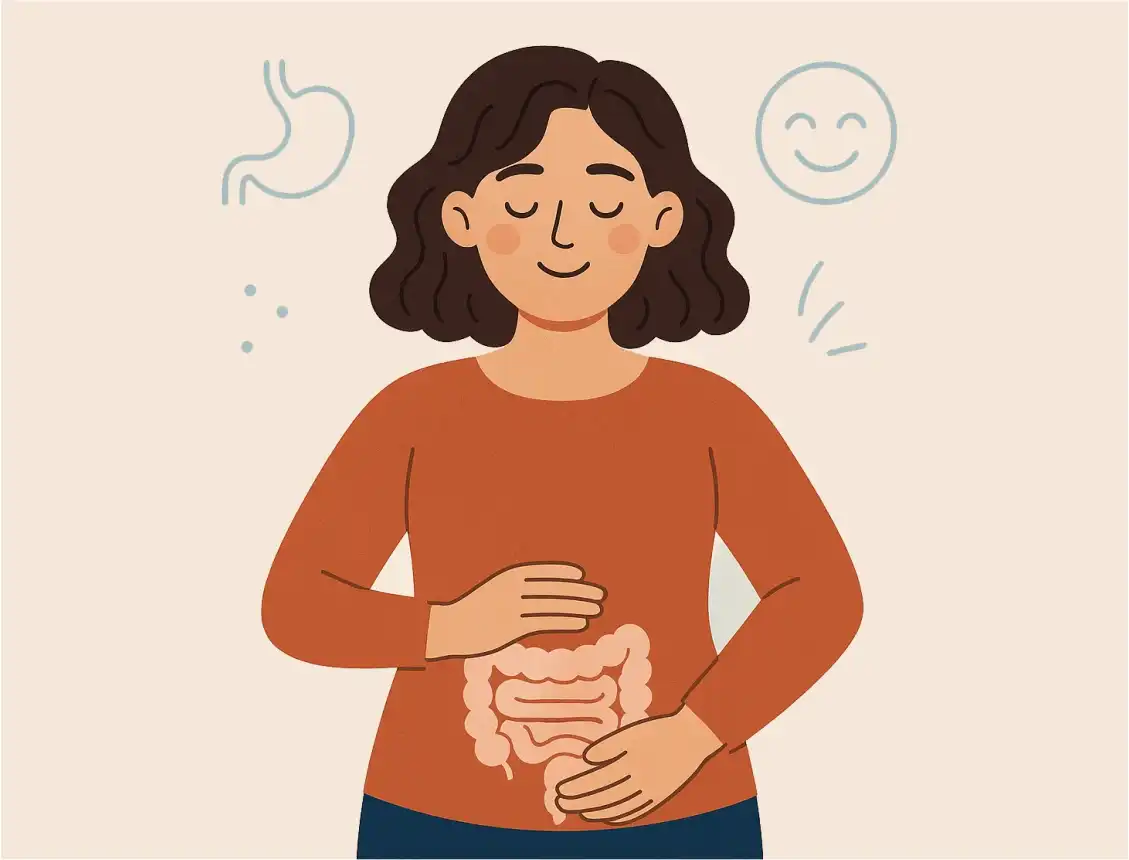The Gut-Brain Connection: How Your Digestive Health Impacts Your Mood and Mental Well-being
Home > Blogs > The Gut-Brain Connection: How Your Digestive Health Impacts Your Mood and Mental Well-being



People have used phrases like "gut feeling" and "butterflies in your stomach" for hundreds of years to suggest that there is a connection between our emotions and our digestive system. The "gut-brain axis" is a complex and two-way communication highway that modern science has now confirmed. This complicated network shows that your digestive health is not only about how well you absorb nutrients; it also has a big effect on your mood, mental clarity, and overall psychological health.
Your enteric nervous system is like a "second brain."
Your gut actually has its own complicated nervous system, which is sometimes called the "second brain." The enteric nervous system (ENS) is a huge network of hundreds of millions of neurones that are built into the walls of your gastrointestinal tract, from the oesophagus to the rectum. The ENS controls important digestive functions like swallowing, enzyme release, blood flow to the gut, and nutrient absorption on its own. It won't help you solve hard math problems, though. More importantly, it talks to your brain all the time, sending and receiving signals that affect a lot more than just digestion.
The vagus nerve is the main way that this communication happens. It is a big nerve that connects the brainstem to many internal organs, such as the gut. Because of this constant communication, irritation in your gut can send signals to your central nervous system, which could change your mood, make you anxious, or even make you depressed. On the other hand, stress or anxiety that starts in the brain can have a direct effect on how the gut works, causing nausea, diarrhoea, or constipation.
How the Microbiome Affects Your Mind in a Big Way
The trillions of microorganisms that live in your gut, known as the gut microbiome, are very important for the gut-brain connection. These tiny creatures, mostly bacteria, make a number of neuroactive substances, such as neurotransmitters like serotonin (a major mood regulator that is made in the gut), dopamine, and GABA. Dysbiosis, or an imbalance in your gut microbiome, can change how these important chemicals are made, which can change how your brain works and how you feel, how you respond to stress, and how well you think. Inflammation hobbling can also send signals to the brain, which can lead to systemic inflammation that is linked to mood disorders.
This new understanding explains why people with chronic digestive problems like Irritable Bowel Syndrome (IBS) or Inflammatory Bowel Disease (IBD) often have higher rates of anxiety and depression. It suggests that taking care of your gut health could be an important part of your overall mental health.
What a gastroenterologist does for your overall health
Because of this deep connection, a Gastroenterologist's knowledge goes far beyond just treating digestive problems. These experts are in a unique position to understand and treat problems with the gut-brain connection because they work in the larger field of Gastroenterology and Hepatology. They don't just look at the gut by itself; they also look at how it affects your nervous system and your health as a whole.
Modern Gastroenterology and Endoscopy Treatment offers a range of options that can directly or indirectly benefit mental well-being. This could involve advanced imaging, endoscopy, or other tests to check how well the gut works and how well the microbes are balanced. The goal is to find out if digestive inflammation, dysbiosis, or motility problems are making symptoms worse, which can also include anxiety, fatigue, or mood swings.
Modern Gastroenterology and Endoscopy Treatment has a lot of different options that can help with mental health in some way. In addition to medications for certain GI problems, treatment plans may include changes to the diet (like low-FODMAP diets for IBS), probiotics, prebiotics, and changes to daily life that are meant to help the gut microbiome stay healthy. When these treatments work to restore gut health, they can often make a patient's mood and mental state much better.
Looking for professional gastroenterology care in Junagadh
If you want full care that understands and treats the strong connection between the gut and brain, you need to choose a specialised Gastroenterology Hospital. These kinds of places have the most up-to-date diagnostic tools and a team of experts from different fields who are all focused on improving digestive health.
If you have ongoing digestive problems that you think are affecting your mental health, or vice versa, getting professional help is a very important step. For residents of the region, finding the Best Gastroenterology Hospital in Junagadh means accessing a facility committed to understanding the complex interplay between your gut and brain. Here, experienced gastroenterologists will do a full evaluation and make a personalised treatment plan that aims to improve your quality of life in both physical and mental health, not just relieve your digestive problems. Your gut health is a very important part of your overall health, including your mental health.